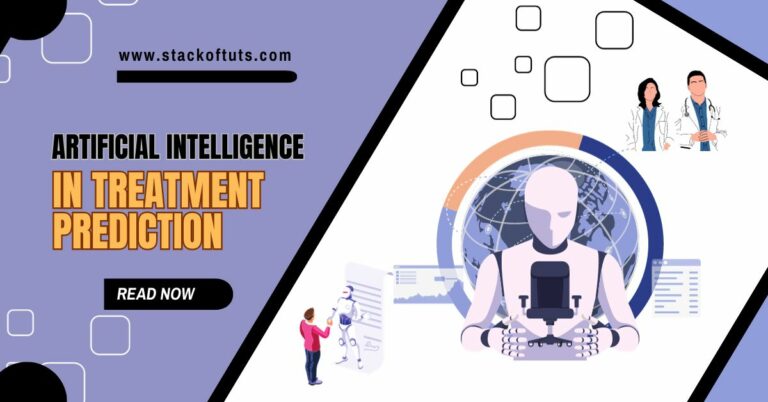
Healthcare institutions globally are continually seeking advancements to enhance their service quality and operational efficiency. Artificial Intelligence (AI) has emerged as a significant instrument in revolutionizing hospital administration systems amidst a wide range of technological developments. We are currently at the threshold of a forthcoming era, whereby the incorporation of Artificial Intelligence Use in Hospital Management represents a significant transformation in both patient care and administrative effectiveness.
Administrative Tasks Through AI

The incorporation of AI into routine administrative tasks is proving to be a game-changer for hospitals. Systems powered by AI are adept at automating processes such as appointment scheduling, billing, and inventory management. This automation not only conserves valuable time but also significantly slashes the likelihood of manual errors. AI algorithms, designed to handle complex tasks with precision, ensure that these critical operations run smoothly and efficiently, allowing hospital staff to focus more on patient-centric responsibilities.
Appointment Scheduling Optimized by AI

AI-driven scheduling systems are adept at managing patient appointments with remarkable efficiency. They analyze past appointment trends to predict future needs, thus optimizing the allocation of hospital resources. This predictive scheduling can lead to better patient flow management and reduced wait times, enhancing the overall patient experience.
Billing with Unprecedented Accuracy

Billing inaccuracies can be a source of significant inconvenience for patients and a financial drain for hospitals. AI systems are tailored to mitigate these challenges by processing billing information with high accuracy. They are capable of verifying insurance eligibility, coding claims accurately, and even processing payments seamlessly, thereby enhancing financial operations within hospital management systems.
Revolutionizing Inventory Management with AI

The management of medical inventory is a complex operation that requires meticulous attention to detail. AI simplifies this task by tracking usage patterns, forecasting demands, and alerting staff to restock supplies before a critical shortage occurs. Such systems are essential in maintaining the uninterrupted flow of medical supplies, which is vital for patient care.
Enhancing Patient Care with AI

Beyond administrative tasks, AI has a significant impact on the quality of patient care. By analyzing vast datasets, AI can assist in formulating personalized treatment plans, predict patient outcomes, and even aid in early diagnosis. These predictive insights ensure that patients receive timely and effective treatment tailored to their specific needs.
AI-Powered Diagnostics

Diagnostics is another area where AI is making substantial inroads. AI algorithms can analyze medical images with a level of precision that sometimes surpasses human experts. By identifying patterns and anomalies quickly, these systems can expedite diagnosis, which is crucial for the timely treatment of patients.
Creating a Smooth Patient Journey

The patient’s journey from admission to discharge can be fraught with complexity. AI systems are designed to navigate these complexities by providing real-time data and analytics, ensuring that each patient’s journey through the healthcare system is as smooth and stress-free as possible.
Cybersecurity and AI: Guardians of Patient Data

As hospitals store more data digitally, the potential for cyber threats increases. AI systems are integral to preemptively identifying and neutralizing these threats, thereby protecting sensitive patient data and ensuring compliance with stringent privacy regulations.
The Future is AI

As we delve further into this century, the role of AI in hospital management systems will continue to expand, becoming an indispensable element in the provision of healthcare services. The capabilities of AI to evolve and learn will result in systems that are not only supportive but also predictive, actively contributing to both patient care and hospital administration.
FAQs
Artificial intelligence benefits the medical healthcare system by improving diagnostic accuracy, personalizing treatment plans, and optimizing operational efficiency, thus elevating overall patient care.
Artificial intelligence in hospital management streamlines administrative duties, forecasts patient admission rates for better resource allocation, and enhances patient care through data-driven decision-making.
Artificial intelligence tools in healthcare include machine learning algorithms for patient data analysis, AI-driven diagnostic imaging systems, and intelligent robotic surgical assistants that enhance precision and efficiency in procedures.
Artificial Intelligence first made its mark in healthcare during the early 1970s with the development of Dendral, a program designed for inferring molecular structures. Since then, AI has grown significantly in the field, with various applications emerging in diagnostics and patient care.
Conclusion
The integration of AI into hospital management systems is not just an innovation; it is a transformative process that improves the efficiency of hospital operations, enhances the quality of patient care, and ensures that hospitals remain at the forefront of technological advancements in healthcare.
Thanks!





